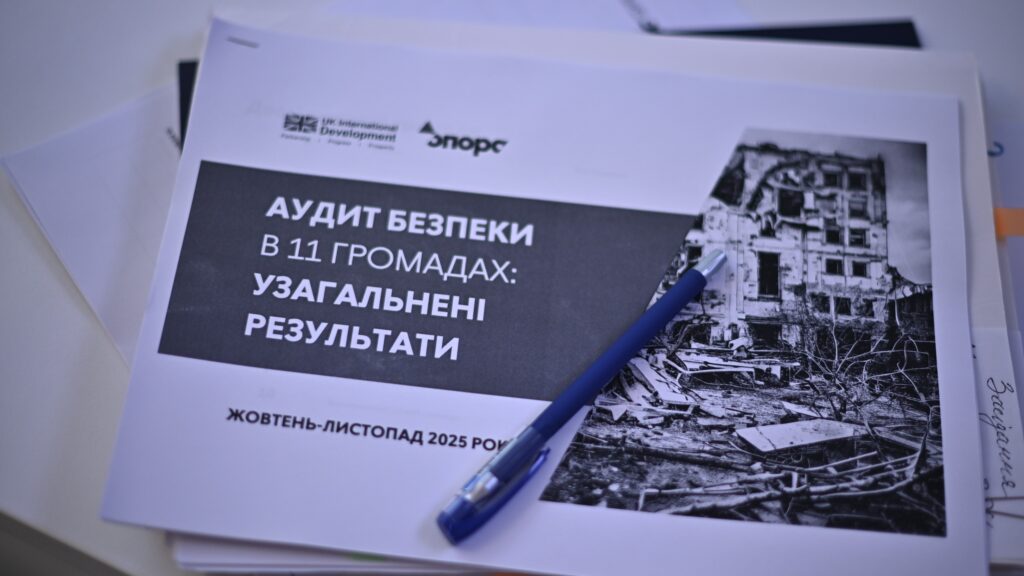The Civil Network OPORA hereby states the presence of convincing facts about non-respect for the right of Kharkiv voters to fair elections and the legal counting of their results during the election of a new mayor. These facts highlight the need to take urgent measures to restore trust in the election. There shall be maximum openness and interest of the subjects of the election process to investigate all identified issues in establishing the returns and results of the vote.
According to the non-partisan observation organization, the protocols on voting results in at least 40 polling stations (out of 605) do not match the PEC vote count protocols received by observers immediately after the count. After OPORA established the facts of probable falsification of voting results, the subjects of the election process in Kharkiv stated that they had identified other similar incidents, which further demonstrates the need for a comprehensive study of the process of establishing the results of the mayoral election.
Probable falsification by entering false data in TEC protocols on the results of voting effectively prevented observers and other election subjects from exercising their rights and powers to prevent the fraud. The Electoral Code establishes a procedure for responding to violations of statutory counting procedures, transportation of election documentation from PECs and TECs, and their consideration at TEC meetings. Instead, the inclusion of false data in TEC protocols could be detected only after their signing and, accordingly, upon the formal completion of the voting process. Thus, the subjects of the election process did not have enough time or actual opportunities to prevent the fraud, which also negatively affects the prospects of appealing against violations committed outside the projected election procedures. In addition, amendments to the Electoral Code of July, 16, 2021 introduced provisions to reduce the time limit for appeals. On the other hand, the mechanism of appeal to election commissions may be applied within the time of adoption by the relevant election commission of election documents from the commission whose actions are being appealed. The Civil Network OPORA and international organizations have already expressed concern in the reports on the observation of the 2020 local elections that the opportunities for appeal at the pre-trial appeal stage have been reduced.
The Venice Commission’s Code of Good Practice in Electoral Affairs considers the fight against violations and falsification of election results to be a precondition for the implementation of the principle of free voting, without which democratic elections cannot be imagined. Instead, Article 19 of the Electoral Code of Ukraine guarantees the accurate and reliable establishment of election results.
Given the number of polling stations where results could be illegally distorted in district TEC protocols on voting results, there are serious risks of delegitimizing the electoral process as a whole.
In these unprecedented setting, the subjects of the election process, especially candidates and election commissions, must take urgent measures to restore confidence in the election process and contribute as much as possible to establishing a realistic picture about the will of citizens. In our opinion, the official winner of the election, a candidate from the local organization of the Kernes Bloc “Successful Kharkiv,” Ihor Terekhov, should have a particular interest in investigating the fraud.
Civil Network OPORA calls on:
Candidates for Kharkiv mayoral seat
- to publish, without undue delay, and on their own initiative, all available vote count protocols at polling stations, as well as protocols of district TECs on the results of voting, which were obtained under the applicable law. This recommendation is especially relevant for candidates with the largest representation in PECs.
- to refrain from any attempts to conceal public information and obstruct the activities of independent observers studying the legality of establishing the returns and results of the voting.
For its end, OPORA is ready to ensure the process of collecting and prompt publication on a single web resource of copies and duplicates of election protocols provided by various subjects of the election process (contact address – info@opora.org.ua).
to Kharkiv City Election Commission, to district election commissions in Kharkiv
- to ensure that the subjects of the election process have unimpeded access to the PEC vote count protocols and the protocols on the results of voting, guided by the principles of publicity and openness of the election process.
- on its own initiative, to publish all necessary documents related to incidents with elements of distortion of the results of citizens’ will, thus increasing confidence in their activities.
to Kharkiv City Election Commission
- to refrain from early registration of the mayor until the full completion of electoral disputes related to the probable fraud in voting results.
to Kharkiv City Council
- to refrain from hasty measures to swear in the newly elected mayor until the full completion of electoral disputes related to the possible falsification of voting results.
to the National Police of Ukraine
- to immediately inform the public about the early findings of the investigation of the facts of falsification of voting results in the early elections of the Kharkiv mayor.
to Political parties that have factions in the Verkhovna Rada of Ukraine
- to publicly declare support for a comprehensive investigation into the alleged falsification of voting results in the early elections of the Kharkiv mayor.
- to immediately start a parliamentary dialogue on the expediency of establishing a Temporary Investigation Commission to study attempts to distort the will of citizens in the early elections of Kharkiv Mayor and previous national and local elections, to assess the effectiveness of ensuring the inescapable punishment for electoral fraud.
- to make changes to the election legislation in terms of legislative support for the functioning of the Information and Analytical System “Local Elections” and the immediate publication of vote count protocols in individual polling stations.
- to create legal conditions to exercise the opportunities to appeal against election violations at the pre-trial stage.
These steps are a guarantee of a comprehensive study of the issues with the establishment of voting results in the early elections of the Kharkiv mayor and the proper observance of the right of citizens to elect local authorities in legal and fair elections.
Extrapolation (transfer) of collected data
OPORA’s observations on election day at polling stations were conducted on the basis of a statistically representative sample. Accordingly, the results of observations within this sample can be extrapolated to the entire city, taking into account the acceptable error. It shall be reminded that OPORA conducted monitoring at 218 polling stations out of 605 PS in the city.
If there were discrepancies in the results of the 40 polling stations where observers were present, then based on the statistical sample we can assume that similar situations could occur in 18% of all polling stations, ie in 109 polling stations.
The study error is 5.2%. Thus, we can assume that at least 103 polling stations, and at most 114 polling stations could also have discrepancies in the data of PEC protocols and the figures entered in the final protocols of district TECs.





